August 3 - 9, 2014: Issue 174
Andrew Thompson
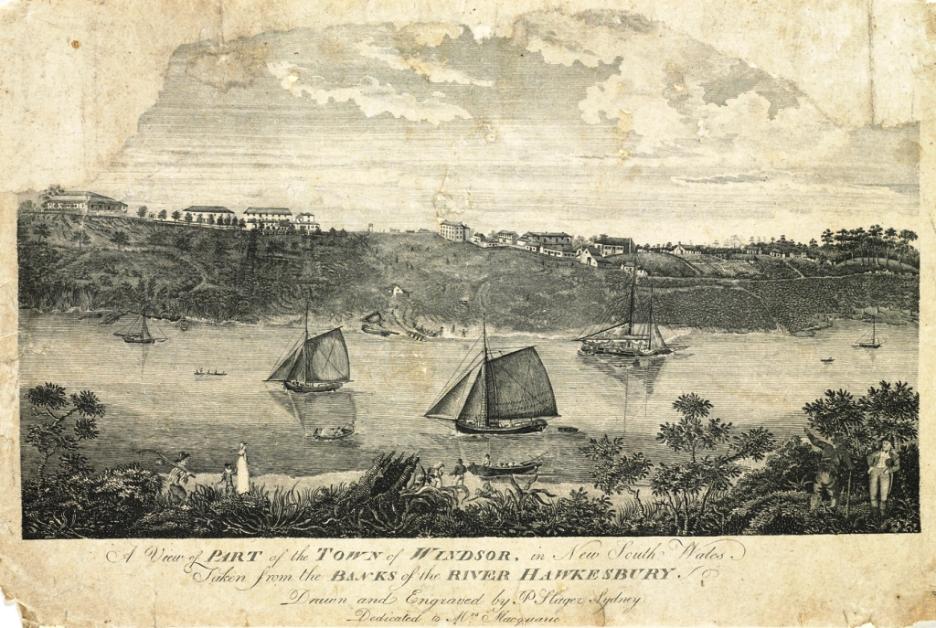
Andrew Thompson – ‘Long Harry’
January or early February 1773 – to October 22nd, 1810
Baptised on 7 February 1773 at Kirk Yetholm, a village in the Scottish Borders region of Scotland, 13 km south east of Kelso and less than 1 mile (1.6 km) west of the border, and 4 kilometres from Thompsons Walls, Andrew Thompson was the youngest and sixth child of John Thompson, a weaver, manufacturer and dyer, and his wife Agnes, née Hilson.
The Thompson/Thomson/'son of Thom' is one of the most common surnames in Scotland, found mostly in central Scotland but with many wonderful and historical associations - a John Thomson in Ayrshire in 1318 led part of Edward Bruce's invading army in Ireland on behalf of Robert the Bruce. There are Gaelic equivalents in MacTavish (son of Tammas) and McCombie (son of Tommy) and MacLehose is from the Gaelic 'mac gille Thoimis" or son of St Thomas. Clan MacThomas was descended from Clan Chattan Mackintoshes and was based initially in Glenshee. The MacThomases supported King Charles I and the Marquis of Montrose but after the defeat of Montrose at the Battle of Philiphaugh, the chief withdrew his men and extended his influence into Glen Prosen and Strathardle. The chief approved of the stable government brought about by Oliver Cromwell and the Commonwealth. Consequently, after the Restoration of King Charles II the MacThomas fortunes declined and the clan drifted apart - some clansmen moving to the Lowlands and changing their name to Thomson or Thomas. James Thomson (1700-1748) was a poet who wrote "The Seasons",regarded as a classic of English literature and is remembered now for writing "Rule Britannia". Alexander "Greek" Thomson was a 19th century architect of note who is becoming more recognised at the end of the 20th. Robert William Thomson invented the pneumatic tyre in December 1845 and scientist and inventor William Thomson, Belfast born, became associated with Glasgow University and became Lord Kelvin. He gave his name to the measurement of temperature "Kelvin".
Andrew Thomson/Thompson then, had lineage, and although some here in Australia later claimed he was an 'illiterate', an advertisement placed in our first newspaper for the return of books which formed part of his library and evidence he attended a local parochial school would attest to the opposite. Soon after entering his father's business his health forced him to leave and begin studying for work as an Exciseman; a Collector of taxes.
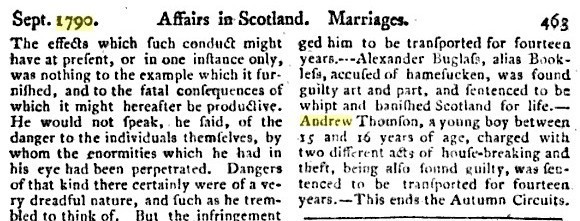
For some reason he broke into a shop and stole cloth in 1790 and was sentenced on two counts of theft on 22nd September 1790 at the Jedburgh Court of Justiciary, birthplace of above mentioned poet James Thomson (1700–1748) and was given 14 years (2x 7years) and sentenced to transportation.
It is interesting to note that eight out of every ten offences were for theft during this period and penalties, to discourage this, included death or transportation. The record (to right) would indicate Andrew looked young or small for his by then 17 years.
Jedburgh lies on the Jed Water, a tributary of the River Teviot.
It is only ten miles from the border with England and is a town and former royal burgh in the Scottish Borders and historically in Roxburghshire.
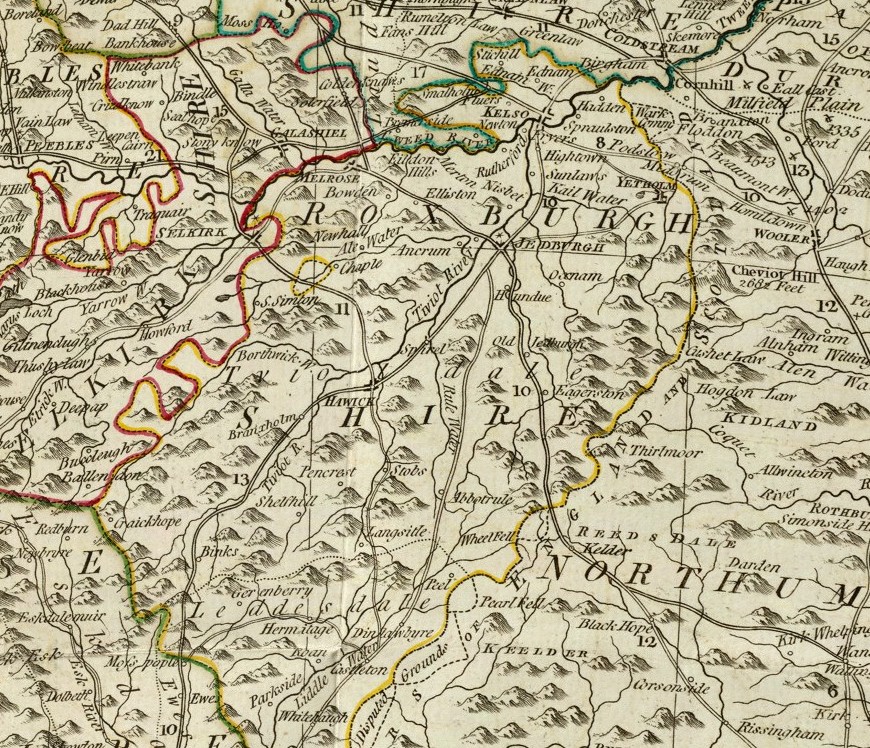
Scotland 1790: Engraved map printed on 4 sheets. Counties in outline color. From David Rumsey Historical Map Collection. Retrieved from rumsey.geogarage.com/maps/g0411013.html
Hi there Pittwater!
I’ve been heavily researching Andrew Thompson and have found a transcript of his court trial at Jedburgh. Thought you might like to pass it on to your Andrew Thompson researcher, A J Guesdon. The text is in a book written by Jan Barkley-Jack – Hawkesbury Settlement Revealed, published in 2009, and appears on Page 349 in Box 9.7
Not sure if it’s totally complete, but there’s a lot of information in it.
Regards- Venecia Wilson, Richmond NSW - PS – I love your web site.
Sheriff’s case:
‘Andrew Thompson…present Prisoner in the tolbooth of Jedburgh and … John Aitkin…on the night between the Fifth and Sixth day of August [1790] …did…break into and enter the house of William thomson Manufacturer and Dyer in Yetholm or Town Yetholm …and carrying away…a pair of Pistols, a Powder flask, some Powder and Shot, a parcel of Indigo and about a pound of Tea…[some] afterwards found hid among some other Goods which had been in possession of the said Andrew Thomson and John Aitkin…And further…On the night betwixt Saturday the Seventh and Sunday the Eighth of August [1790]…did break into the house or Shop of Walter Turner Merchant or Shopkeeper in Yetholm or Town Yetholm…and steal…Linnen and Woolen Goods…and concealed them partly amongst some Straw in a Stackyard…and the remainder in a holde [under some cabbages] in a park possessed by John Thompson Indweller in Yetholm…Edinburgh 31.8.1790’
Thompson’s Declaration:
‘Andrew Thomson youngest son of the said John Thomson aged Sixteen being judicially examined Declares he knows that John Aitkin was a Journeyman Weaver with the Declarants Brother Walter Thomson and…the Declarant did work [and sleep] a little in the same place with Aitkin till about nine or Ten weeks Ago when he lost his health and was no longer able to work at the Weaver Business but went to School [living at that time with his brother William]…that John Aitkin left Yetholm and the cause of his going away was that he had run in Debt to the Declarants mother and had turned Idle. Declares…he heard that Walter Turner had found part of his goods in a Chest of which John Aitkin had the key away with him…Declares he does not remember to have seen the Cabbages he planted from the time he set them.’
Court Proceedings at Jedburgh:
‘John Aitkin…failing to Compear…[was declared] to be an Outlaw…Andrew Thompson…present…answered that he was Guilty… The Advocate Depute declared that on account of the Pannell’s youth and his former good Character and some other circumstances he restricted the libel to an arbitrary punishment…[At] and assizes…[21.9.1790] the said Andrew Thomson [was found] Guilty [10 of the 15 jurymen were Merchants]…[on 22.9.1790] The Lord Hailes…[declared] the …Pannell to be Transported beyond Seas to such place as his Majesty [decreed]…Council has appointed…that for the space of Fourteen years with Certification to him that if after being so Transported he shall be found at large in any part of Great Britain during the foresaid space without some lawfull Cause…he shall suffer death.
His family apparently disowned him and no member had anything to do with him again although records of letters and parcels registered to him at Sydney could provide conjecture for contact or for more books and articles ordered to arrive by ship.
Andrew was sent on the Pitt: Departing June-July 1791 for Sydney, and arrived in Sydney on 14 February, 1792, days after his 19th birthday. The Pitt was run by Capt. Edward Manning and owned by London alderman George Mackenzie Macaulay. This ship formed part of what some chroniclers refer to as 'Ships After the Third Fleet' (See: The Cozens/Byrnes Merchants Networks Project). On 15 July, 1791, the surgeon on Pitt reported smallpox aboard.
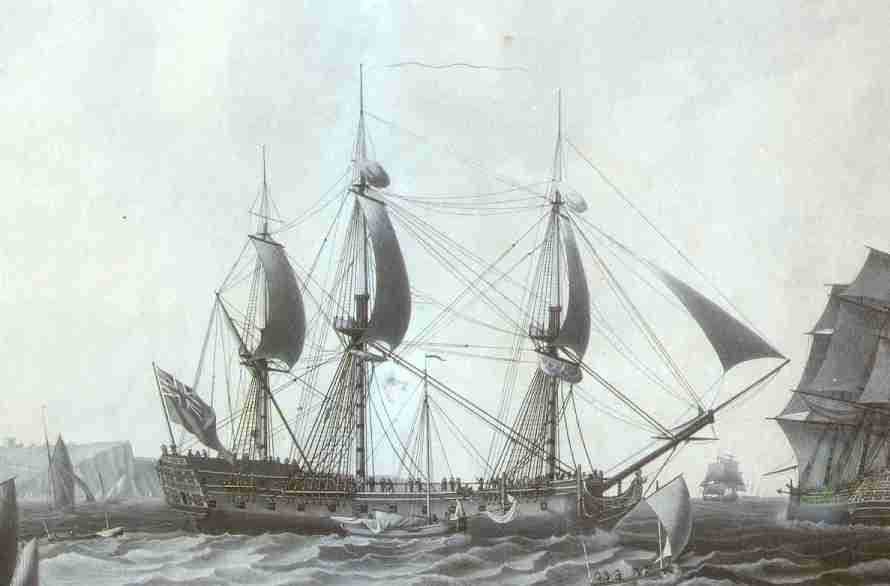
The Pitt - transport ship.
15 June, 1791: Indenture for the Pitt, (copy of original), made on June 15, 1791, thirty first year of Geo III, .... between Thos Shelton of the Sessions House in the City of London, and George Mackenzie Macaulay of Chatam Place London, [transportable felons] 224 cons,227 [names], And Whereas His Majesty by His Royal Sign manual bearing date at His Court of St James's the [15 June] 1791, [by act of parlt in 28th year of reign], ....George Mackenzie Macaulay and his Assigns shall and will forthwith take and receive all the several before named Offenders and transport them or cause them to be transported effectually as soon as conveniently may be to the Eastern Coast of New South Wales or some one or other of the Islands Adjacent pursuant to the sentences and orders aforesaid concerning them respectively And shall and will procure such evidence as the nature of the case will admit of the landing there of the said several before named Offenders (death and casualties by Sea excepted) and produce the same to whom it may concern when lawfully called upon And shall not nor will by the wilful default of him the said George Mackenzie Macaulay or his Assigns suffer the said Offenders or any or either of them to return to Great Britain or Ireland during the respective terms ..... sgd in presence of ? Fitzpatrick and one other illegible, Thomas Shelton and George M Macaulay.
Macaulay on 11 July, 1791 then agreed to assign [the prisoners] to the Gov. Phillip and his assigns, and all his rights in them, on 11 July, 1791.
Also sailing in the Pitt was Major Francis Grose, who led the New South Wales Corps (aka The Rum Corps, Botany Bay rangers, Rum Puncheon Corps, The Condemned) and was left in charge when Governor Phillip returned to England for respite in December 1792. The New South Wales Corps was formed in England in 1789 as a permanent regiment to relieve the Royal Marines who had accompanied the First Fleet to Australia. The regiment consisted of three companies. Due to the remoteness and unpopularity of the posting they were composed of officers on half pay, troublemakers, soldiers paroled from military prisons and those with few prospects, who were gambling on making a life for themselves in the new colony. The regiment began arriving as guards on the Second Fleet in 1790. Major Grose arrived to take command and assume role of Lieutenant-Governor of the colony. A fourth company was raised from those marines wishing to remain in NSW under Captain George Johnston, who had been Governor Phillip's aide-de-camp.
Andrew Thomson/Thompson was assigned to the men's provision store and in February the following year became part of the police force (1793) or a stone work labour gang - (there are two versions of what he during his first few years here) and then was transferred to being a trustworthy watchman. In Britain at this time there were watchmen assigned in towns and no police force. John Harris previously an emancipist, watchman innkeeper and labourer of St Marylebone, London, who was sentenced to death on 15 January 1783 at the Old Bailey for stealing eight silver spoons, which was commuted to fourteen years transportation to America, and altered the following month to deportation for life to Africa and finally changed to New South Wales, sailed, with a life sentence, in the First Fleet in the Scarborough. It was he who proposed to fellow First Fleeter Judge-Advocate David Collins to establish a night watch, 'to be selected among the convicts for the purpose to stem the frequent commission of offences in the settlement' in the Winter of 1789. Between 1788 and 1842 around 80,000 convicts were transported to NSW, so the need for a police force to be formed from some of those transported, who clearly outnumbered settlers, was the best idea.Collins commented that:
"It was to be wished, that a watch established for the preservation of public and private property had been formed of free people, and that necessity had not compelled us in selecting the first members of our little police, to be appointed from a body of men in whose eyes, it could not be denied, the property of individuals had never been sacred. But there was not any choice convicts who had any property were themselves interested in defeating such practises [as theft]".
The Sydney Foot Police Force was established in 1790, there were 36 Constables serving by 1800 (see more at: thedirton.therocks.) . Thompson was assigned to Toongabbie and other areas. In 1796 he was appointed by the second Governor of NSW, John Hunter, to the then named 'Green Hills' district (now Windsor) and was pardoned in 1798. Captain John Hunter, in command of the Siruis ship of the First Fleet, was the man who first explored Pittwater: "Chart of the coasts and harbours of Botany-Bay, Port-Jackson and Broken-Bay, as survey'd by Capt.n John Hunter of H.M.S. Sirius". He arrived in Sydney on 7 September 1795 on HMS Reliance and took up the office of governor on 11 September 1795 and did his utmost to transfer the militarised by Grose colony and its management of the lands, public stores, courts and convict labour back to civil administration.
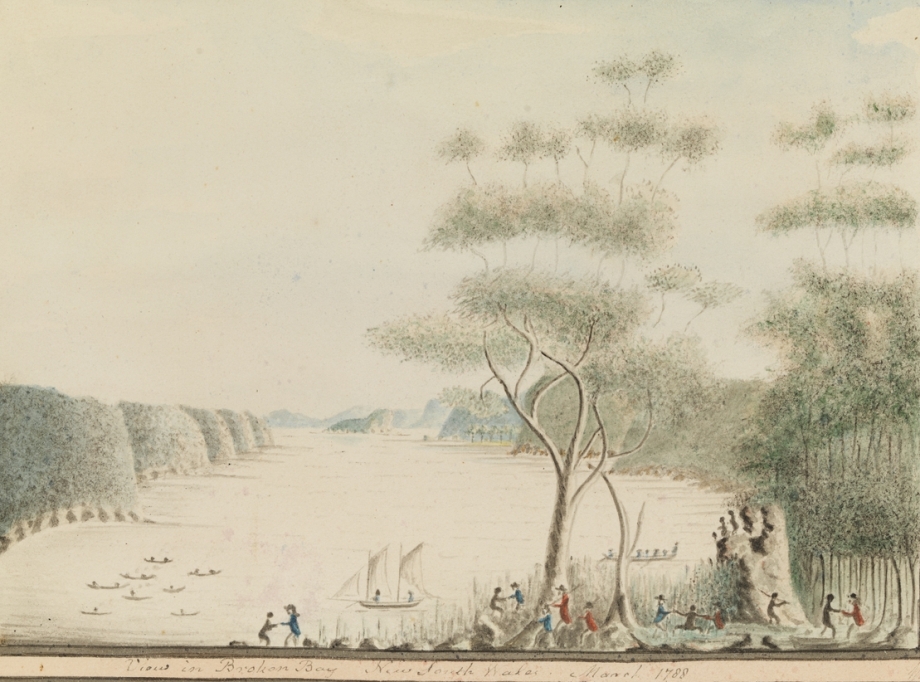
'View in Broken Bay New South Wales. March 1788' by William Bradley - Drawings from his journal `A Voyage to New South Wales',1802+ Image No.: a3461013, courtesy State Library of New South Wales.
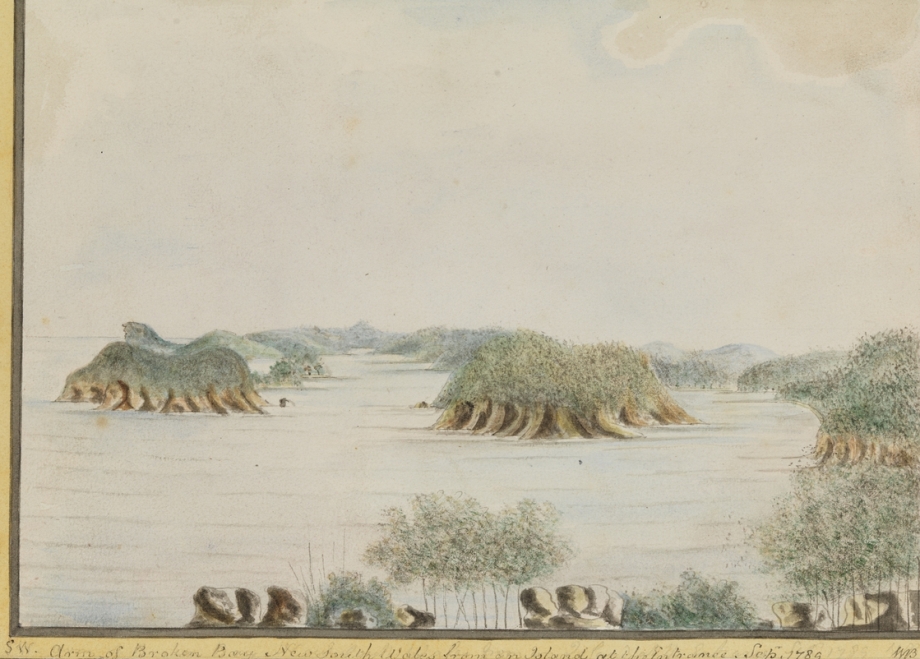
'SW. Arm of Broken Bay New South Wales from an Island at the Entrance. Sepr 1789' by William Bradley - Drawings from his journal `A Voyage to New South Wales', 1802+ , Image No.:a3461014, courtesy State Library of New South Wales.
Andrew Thompson, like any other settler at this time, was assigned convict labour for properties and land grants that he then began to accumulate. To get the produce from these to Sydney Cove he utilised the flowing past his estates Hawkesbury River and employed a boat builder to construct these vessels. The Sydney Gazette and New South Wales Advertiser, the first newspaper printed in Australia, running from 5 March 1803 until 20 October 1842, records some of these vessels and their adventures;
Boats.—Came in from Hawkesbury on Saturday last, the 19th inst. the William and Mary, W. Miller owner, laden with wheat. On Tuesday came in from Hawkesbury the Raven, Thomas Raby owner, also laden with wheat; and same day the Hope of Hawkesbury, A. Thompson owner, with wheat barley, and oats. And on Thursday came in the Argument, Ward and Eaton owners, with wheat.—On Thursday the Hope sailed again for Hawkesbury. SHIP NEWS. (1803, March 26). The Sydney Gazette and New South Wales Advertiser (NSW : 1803 - 1842), p. 4. Retrieved from http://nla.gov.au/nla.news-article625468
What is interesting about this above Ships News notice in the fourth ever issue of The Sydney Gazette and New South Wales Advertiseris a 'NOTICE' in the second Issue of the Gazette that the 'granary's' at Sydney Cove were full and could accept no more wheat - the colony had gone from almost starving to having bumper crops. Andrew Thompson later acquired a 'townhouse' in Macquarie Place (1809), fitted with stables and a granary, and it may have been here that he stored his goods for sale in later years.
And on Thursday arrived the Nancy, A. Thompson owner, and the William from Hawkesbury, with wheat. The Nancy sailed from hence for Hunter's River on the 21st of October; took on board 40 logs of very fine Cedar, mostly measuring 20 feet and upwards, and squaring more than 3 feet; and arrived at Hawkesbury with the freight the 1st of the present month. SHIP NEWS. (1803, December 25). The Sydney Gazette and New South Wales Advertiser (NSW : 1803 - 1842), p. 4. Retrieved fromhttp://nla.gov.au/nla.news-article625948
The Keel of a new Vessel was last week laid by Messrs Kable and Underwood, opposite to the yard of the latter, all the planks of which are to be cedar, and her dimensions not under those of the Governor King. Two handsome Sloops both built at Hawkesbury, lately came into the cove for the first time, one of which we before mentioned to be built by Mr. A. Thompson, named the Hawkesbury, conveniently carries from 7 to 800 bushels ; and the other called the Speedy about 500 bushels. Both these … performances, and that of the Nancy, will doubtless operate as a spur to emulation and industry, which are the founders of opulence, and the certain tread to happiness and social independence. SYDNEY. (1804, April 1). The Sydney Gazette and New South Wales Advertiser (NSW : 1803 - 1842), p. 2. Retrieved fromhttp://nla.gov.au/nla.news-article626111
BOATS. - On Sunday last arrived from Hawkesbury the Argument, Ward and Eaton, the Raven, T. Raby; Hope, Smallwood; Edwin, belonging to J. Palmer, Esq: and Hope of Hawkesbury, A. Thompson. SHIP NEWS. (1803, April 24). The Sydney Gazette and New South Wales Advertiser (NSW : 1803 - 1842), p. 4. Retrieved from http://nla.gov.au/nla.news-article625529
We feel ourselves happy in informing the Public, that Mr. Andrew Thompson's boat, stated to have been dashed to pieces on her passage to Sydney, was not totally lost, although she sustained much damage. Classified Advertising. (1803, May 15). The Sydney Gazette and New South Wales Advertiser (NSW : 1803 - 1842), p. 1. Retrieved from http://nla.gov.au/nla.news-article625574
BOATS - On Monday came in from Hawkesbury the William Mary, Miller; on Tuesday the Union, Jones; Hope, Smallwood; William, Grant and Kearns; Hope, Thompson; all laden with corn. By the Union the three men wrecked in Broken Bay were brought in; the particulars of which are contained in the preceding page. SHIP NEWS. (1803, May 29). The Sydney Gazette and New South Wales Advertiser (NSW : 1803 - 1842), p. 4. Retrieved from http://nla.gov.au/nla.news-article625598
A strong well-built Sloop, from 35 to 40 tons burthen, belonging to Mr. Andrew Thompson, was on Saturday the 17th instant launched at the Green Hills, Hawkesbury. Mr. Thompson has another vessel of nearly the same size now on the stacks, which will be shortly ready to launch. SYDNEY. (1803, September 25). The Sydney Gazette and New South Wales Advertiser (NSW : 1803 - 1842), p. 3. Retrieved from http://nla.gov.au/nla.news-article625792
The New Hawkesbury Sloop, built at the Green Hills, Mr A Thompson, owner, came round for the first time on Monday 1st, with 1160 Bushels of Wheat, on from Cornwallis Farm, cultivated by Government, and could have taken in with safety 250 more. This vessel called the Nancy, was built under the sole management and direction of Mr. Kelly, formerly chief mate of the Eliza whaler, who also navigates her. Her computed burthen is 40 tons, carries 5 men, and has 4 swivels mounted on her quarter railing. Connoiseurs find no other fault with her than on account of her being rather "shallow in the Bow." SYDNEY. (1803, October 23). The Sydney Gazette and New South Wales Advertiser (NSW : 1803 - 1842), p. 2. Retrieved from http://nla.gov.au/nla.news-article625840
This mentions Collins once again, who had been sent out with the first fleet. During 1803 he established the first, short-lived settlement in what is now the state of Victoria at Sullivan Bay on Port Phillip. In 1804 he became the first Lieutenant Governor of the Colony of Van Diemens Land (Tasmania). He had arrived there post-Lieutenant John Bowen, who had set up a settlement at Risdon in 1803. Captain Collins proposed moving the settlement to Sullivan's Cove, where there was abundant fresh water and here it was established on February 21st, 1804, and is now called 'Hobart':
Sails this day the Nancy, A. Thompson owner, for the Southward, with Dispatches on board for Lieut. Governor COLLINS from HIS EXCELLENCY. SHIP NEWS. (1804, January 1). The Sydney Gazette and New South Wales Advertiser (NSW : 1803 - 1842), p. 4. Retrieved from http://nla.gov.au/nla.news-article625954
Another handsome Sloop built by Mr. A. Thompson, was on Thursday launched from the Green Hills; her keel was laid by Mr. Kelly, now master of the Nancy, her burthen is computed at 30 tons, and in compliment to the spot of her nativity, she has received the name of the Hawkesbury. Bench of Magistrates. (1804, February 19). The Sydney Gazette and New South Wales Advertiser (NSW : 1803 - 1842), p. 4. Retrieved from http://nla.gov.au/nla.news-article626050
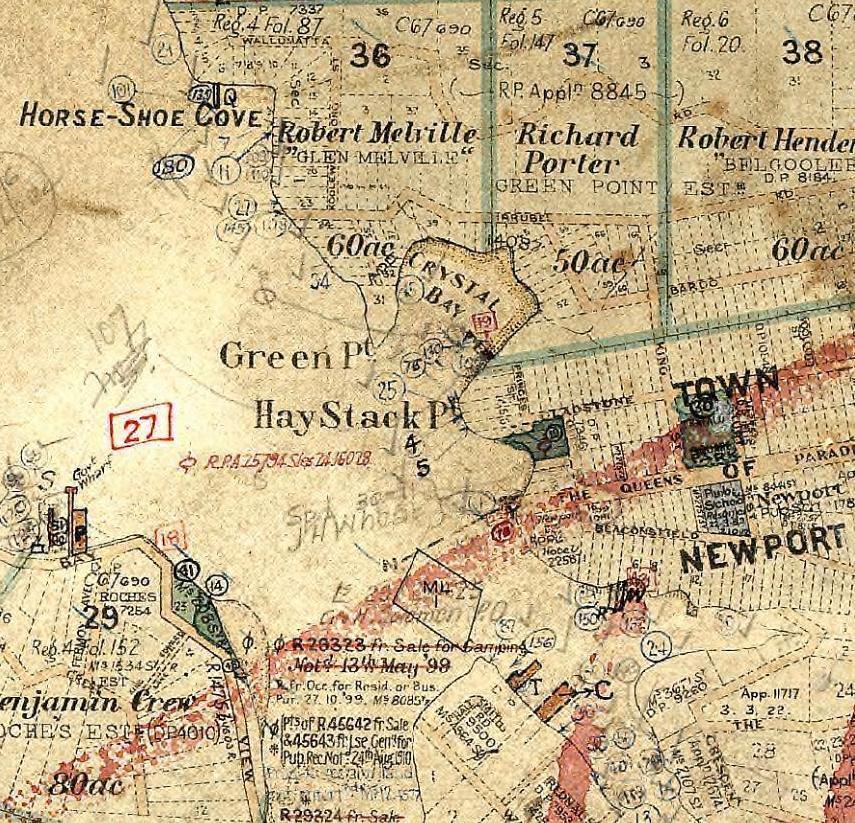
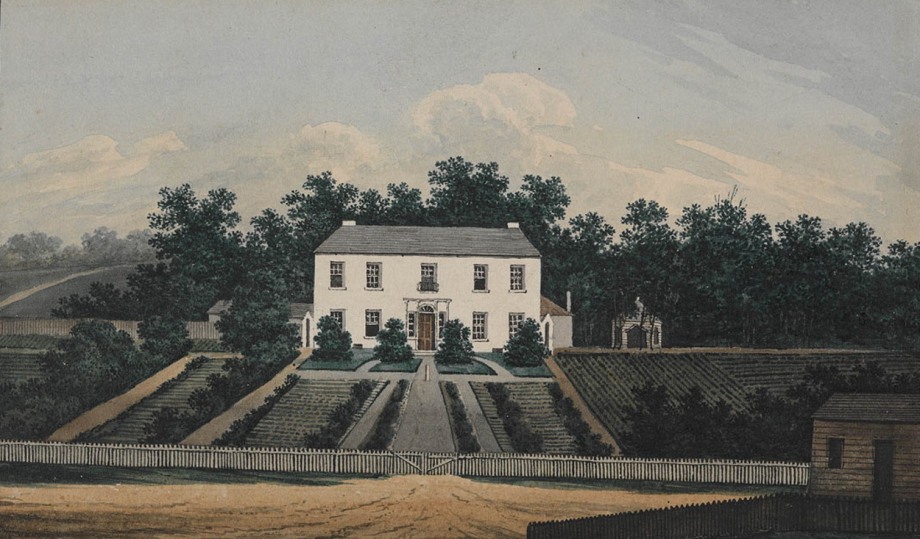
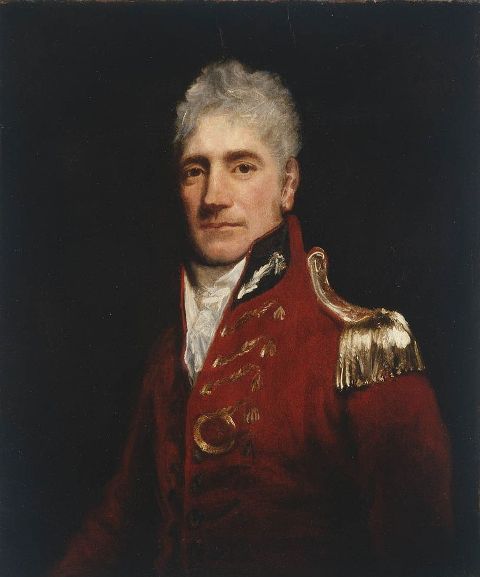 His vast holdings were advertised for sale by auction for years to come. He left one quarter of these to Macquarie, valued at over five thousand pounds in those times, and another half to his family in Scotland, who refused the bequest. Some of these listings and subsequent reports on the movements of Macquarie indicate how close the new Governor had become to him. Both were, after all, born men of Scotland (Lachlan Macquarie was born on the island of the Ulva off the coast of the Isle of Mull in the Inner Hebrides, a chain of islands off the West Coast of Scotland). Further insight into Macquarie's life, whose first wife, Jane Jarvis, had also died of the 'consumption' disease in 1796 and his recorded deep grief, may suggest those memories were being revisited.
His vast holdings were advertised for sale by auction for years to come. He left one quarter of these to Macquarie, valued at over five thousand pounds in those times, and another half to his family in Scotland, who refused the bequest. Some of these listings and subsequent reports on the movements of Macquarie indicate how close the new Governor had become to him. Both were, after all, born men of Scotland (Lachlan Macquarie was born on the island of the Ulva off the coast of the Isle of Mull in the Inner Hebrides, a chain of islands off the West Coast of Scotland). Further insight into Macquarie's life, whose first wife, Jane Jarvis, had also died of the 'consumption' disease in 1796 and his recorded deep grief, may suggest those memories were being revisited.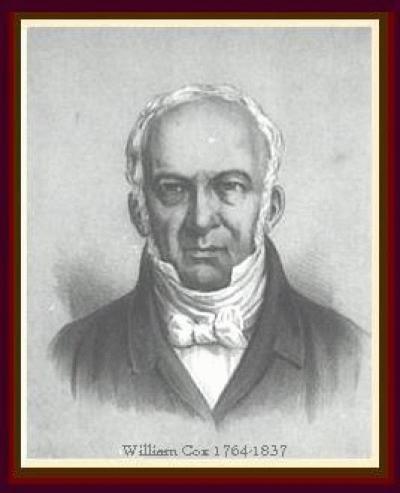 To be presented on the 1st Instant to HIS EXCELLENCY the GOVERNOR at Windsor (formerly the Green Hills), by THOMAS ARNDELL Esq . "WE, the undersigned Settlers, Residents of Hawkesbury and its Vicinity, beg leave respectfully to congratulate YOUR EXCELLENCY on arrival at this Settlement, and earnestly hope Your Excellency will be pleased with the Agricultural improvements and industry that pervade —, and trust that the continuance of our exertions will ever merit your Excellency's approbation.
To be presented on the 1st Instant to HIS EXCELLENCY the GOVERNOR at Windsor (formerly the Green Hills), by THOMAS ARNDELL Esq . "WE, the undersigned Settlers, Residents of Hawkesbury and its Vicinity, beg leave respectfully to congratulate YOUR EXCELLENCY on arrival at this Settlement, and earnestly hope Your Excellency will be pleased with the Agricultural improvements and industry that pervade —, and trust that the continuance of our exertions will ever merit your Excellency's approbation.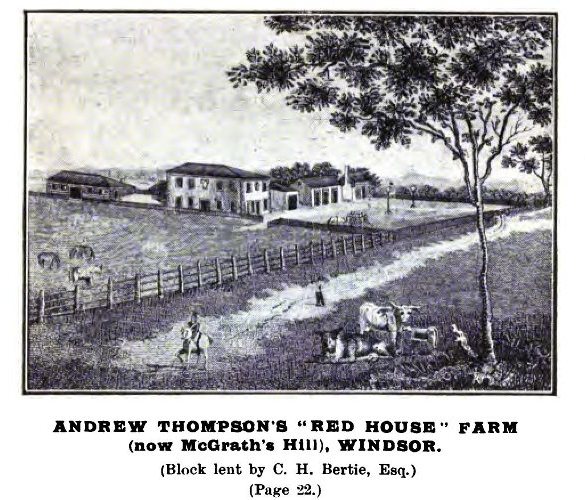
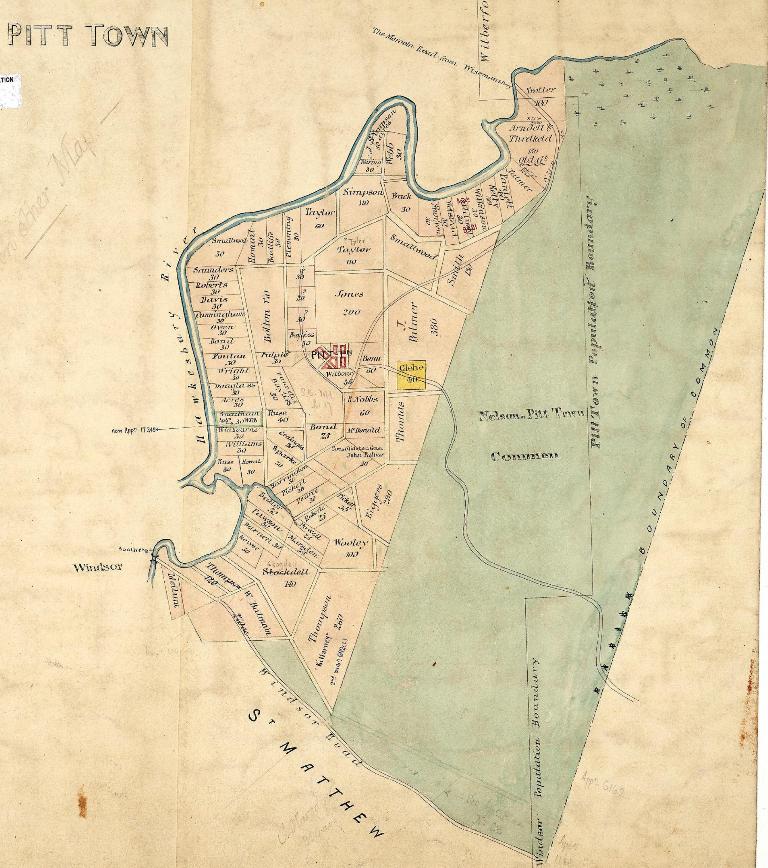
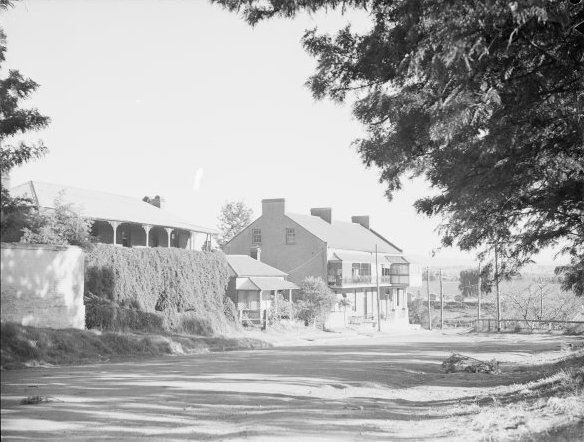
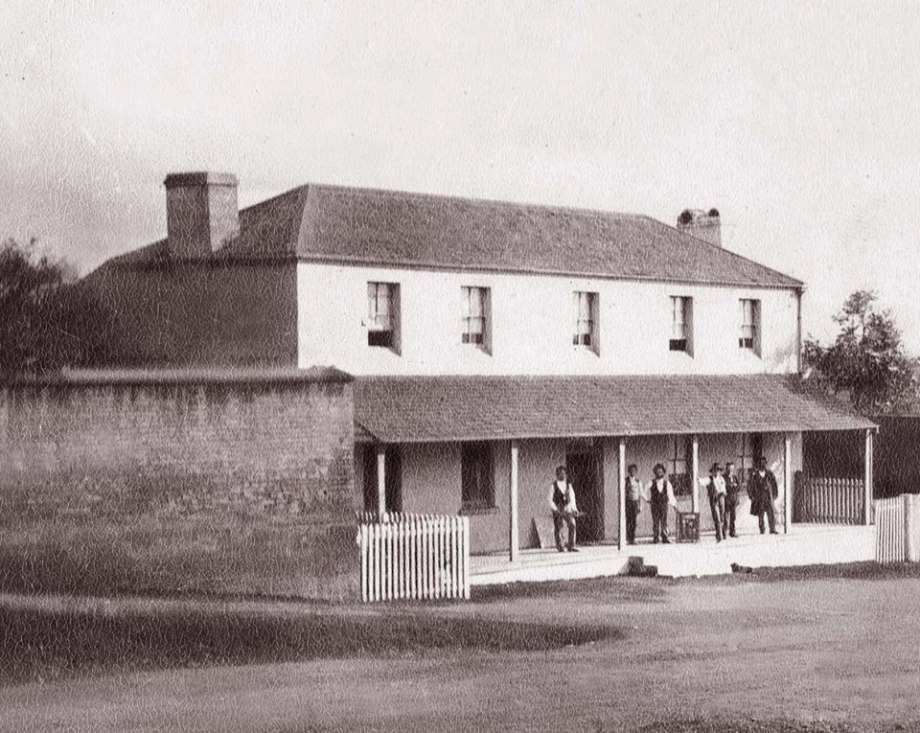
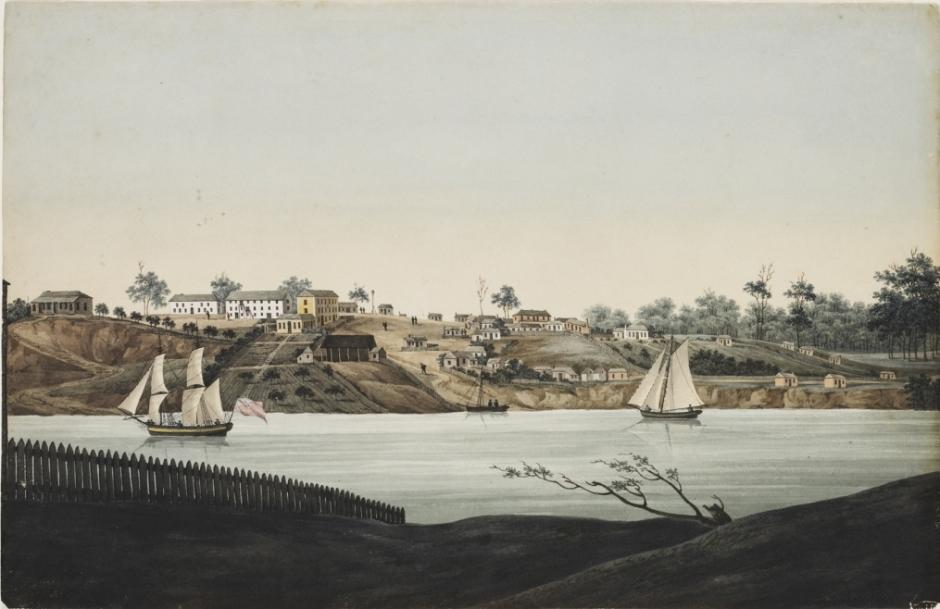
Green Hills - 1803 - Image No.: a1313052h, Courtesy State Library of NSW.
Early Days of Windsor (By Rev. James. Steele.)
ANDREW THOMPSON.
Amongst the pioneers of Windsor none is so familiar to local residents as Andrew Thompson. He was born in Scotland about the year 1773. His parents were of the poorer class, his father being engaged in a small business. When 16 years of age he was transported to New South Wales for setting fire to a stack of hay, and arrived by the ship "Pitt" in the year 1792.... On arrival, he was appointed to the stone gang at Parramatta, where he probably remained for a few years. We first hear of him at the Hawkesbury early in the year 1800, when the population was very small, as a settler and constable. At a meeting of settlers held to fix the price of stores and labor, at the Hawkesbury in the year 1800, Andrew Thompson was amongst those present, also D. Smallwood Edward Robinson, and M. Lock.
On 1st July, 1803, he obtained a grant of 120 acres from Governor King, on the South Creek, opposite the property now occupied by Mr. John Tebbutt, extending out to Mcgrath's Hill. On 11th August, 1804, he also got another grant of 270 acres adjoining Nelson' Common, afterwards known as Killarney, where subsequently the Scarvell family resided for many years. In the year 1802 he built the first bridge over the South Creek. It was a floating bridge, and was situated about 100 yards farther down the creek than the present bridge behind the Court House. Towards the construction of this bridge he got a Government grant of £15, and was also supplied with Government labor. Permission was given him to collect toll, and he was guaranteed against opposition. In 1806 this structure was replaced by a log bridge, for which he got a 14 years lease.
On 13th November, 1800. Governor King issued a proclamation that in order to prevent litigation, all agreements for the Hawkesbury should be registered with Andrew Thompson, the registration fee to be 6d each entry. About this time he was also appointed superintendent of labor gangs. He also turned his attention to shipbuilding for we find in returns dated 28th, February 1804, and 27th December, 1805, that he was the owner of the following vessels, trading to Bass Straits and Sydney: "Nancy," 20 tons; "Hope," 16 tons;, and "Hawkesbury.'' 15 tons. They were registered in October, 1802, and March, 1804, and carried crews of three to six men each. From other sources we learn that these vessels were built on the Hawkesbury. He also built the "Governor Bligh," in 1807, which traded to New Zealand.
Andrew Thompson appears to have had some literary taste for in an advertisement in "Sydney Gazette", 9th December 1804 he asked that those to whom he had loaned certain books would kindly return them. The list of missing books is given, which includes such standard works as Milton, Burns, Sterne, Thomson, Hervey, and others.
A Government order, dated 8th April, 1804, ordered that all boats trading on the Hawkesbury River should be numbered and registered by Andrew Thompson, head constable, otherwise they would be confiscated. In the year 1804 Governor King appointed trustees for the several Commons of the colony, Andrew Thompson being so appointed for both the Ham and Nelson Commons. He next appears on the scene as a brewer, receiving permission on 11th May, 1806 to sell, at a shilling a gallon and small beer 6d. His brewery was situated on the bank of the South Creek. In connection with the brewery he also kept a public house.
Another industry he started was the manufacture of salt. This he carried on at Scotland Island near Newport, at the mouth of the Hawkesbury. It is said that he also had an illicit distillery here. However, it is known that Governor King gave him 40 gallons of spirits as a reward for some service rendered on May 27, 1806. A. T. Biggars got a similar reward at the same time, spirits in those days, as was well-known, being a medium of exchange.
It is evident that Andrew Thompson did traffic pretty largely in spirits, for he was fined £100 in 1807 for so doing. The fine however, was remitted by Governor Bligh. Again, we find in 1809 a reference to the profits made on the sale of spirits by Andrew Thompson, the Governor's bailiff. From this it appears that he obtained 400 gallons of spirits, which he retailed at a profit of £1200. (See H.R., Vol. vii., page 225.)
He acquired a number of properties by purchase, including property in Baker-street and in Bridge-street, Windsor. His town residence in Sydney was in Macquarie Place, near the site of the present Lands Office. He had a house, known as the Red House, on his farm, near Magrath's Hill. He also had a large house and land in Bridge-street. In this house were held several meetings of local residents, one on 20th January, 1807, to petition the Governor against the importation of wheat. We might here mention that wheat was selling on 19th January 1806 at 9s 3d in Windsor, and 10s a bushel in Sydney. This petition was signed by 156 persons, among whom were Messrs. T Arndell Thomas Hobby, Andrew Thompson, George Crossley, John Dight C. and J. Palmer, T. M. Pitt. M. Evermgham, and H. Stockfish. At another meeting to consider local grievances, John Bowman Matthew Gibbons, and William Cummins were also present. Another meeting, probably called by Andrew Thompson, was held at his house in 1807, when it was decided to send a petition of sympathy to Governor Bligh. This was signed by 546 persons. Amongst those signatories were : Messrs James Cox, Thomas Hobby, G. W. Evans, William Baker, Thomas Arndell, Samuel Solomon, and Andrew Thompson.
Andrew Thompson was appointed auctioneer for the Hawkesbury district by the Lieutenant Governor on the 21st January, 1809. On 31st March, 1810, he was appointed a trustee and commissioner of the turnpike road from Sydney to Windsor, along with D'Arcy Wentworth, and Simeon Lord, by Governor Macquarie.
Governor Bligh, who took to farming in 1807, bought several holdings on the river, near Pitt Town, near where the present punt is located. Some oak trees planted at the time, are known to-day as Bligh's oaks. His son-in-law, Captain Putland, also had land adjoining. Captain Putland died in 1808, and was buried first in old St. Philip's, Sydney, the body being removed in 1856 to Sandhills (Devonshire-street cemetery) and in 1901 again removed, to La Perouse, Botany. The inscription: on the old tombstone reads : — Sacred. To the memory of John Putland Esq. Captain of H.M. Ship "Porpoise," Chief Magistrate throughout the Territory and Aid de Camp to His Excellency Governor Bligh. Departed this life January 4th, 1808. Aged 27 years.
The Governor appointed Andrew Thompson as his bailiff or agent, and left the entire management of his farm in his hands. In October, 1807, the Governor's stock consisted of 49 cows and a number of sheep and pigs. The milk returns sent by Andrew Thompson to him amounted to £60 0s 10d for two months.
During the big floods in 1806 and 1809 he took a very active part in rescuing people and property in danger. In the performance of this heroic work his health was seriously undermined. Andrew Thompson also had a large store keeping business at the Green Hills (Windsor), which, according to an advertisement in the Sydney "Gazette," was taken over by Mr. John Howe, in December, 1809. He having had on sale "Woollens, drapery, and all sorts of lines."
Governor Macquarie landed in New South Wales 28th December, 1809, and took over the administration of affairs of the colony 1st January,1810, from Lieutenant Governor Foveaux, and on 12th January 1810, less than a fortnight after his arrival, Governor Macquarie made Andrew Thompson a Justice of the Peace, and appointed him as chief magistrate for the district of the Hawkesbury. Governor Macquarie reports that on 30th April, 1810, Andrew Thompson was received at the Governor's table, in Sydney, along with Simeon Lord, an opulent Sydney merchant and Dr. Redfern, the assistant surgeon and the officers of the 73rd Regiment. This proceeding was greatly resented by the more aristocratic members of the community. Andrew Thompson, however, did not live long to enjoy the honors which were thus thrust upon him, for he died at his residence, Green Hills, on 22nd October, 1810, and was buried on 26th October, in a vault in the new cemetery. His was the first interment there, the ground not being fenced nor consecrated until shortly before (11th May, 1811). His death was specially notified to the Secretary of State by Governor Macquarie on 27th October, 1810. In his will he named as executors John Howe, Simeon Lord (he was the father of the late George. W. Lord. M.L.C.), and Captain H. C. Antill. One half of his estate was bequeathed to Governor Macquarie and Simeon Lord in equal parts, the remainder to be left to his relatives in Britain. His effects were sold by auction on 19th January 1811, by John Howe, his successor in the office of local auctioneer.
The following obituary notice of Andrew Thompson appeared in the "Sydney Gazette" 27th October, 1810 : — "Died at Hawkesbury, Green Hills, on Monday. 22nd inst... after a lingering and severe illness, aged 37 years, Andrew Thompson, Esq., Magistrate of that district. 'In retracing the last 20 years of the life of this exemplary and much-lamented character, it will not be held uncharitable to glance at the lapse from rectitude, which in an early and inexperienced period of youth destined him to these shores, since it will stamp a more honorable tribute to his memory to have it recorded, that from his first; arrival in this country he uniformly conducted himself with that strict regard to integrity and morality as to obtain and enjoy the countenance and protection of several succeeding Governors; active, intelligent and industrious of manners, mild and conciliatory, with a heart generous and humane, Mr. Thompson was enabled to accumulate considerable property, and what was more valuable to him, to possess the confidence of some of the most distinguished characters of this country, the consciousness of which surmounted the private solicitude of revisiting his native country and led him rather to yield to the wish of passing the evening of his life where his manhood had been meritoriously exerted, than, of returning to the land which gave him birth — Mr. Thompson's intrinsic good qualities were appreciated by His Excellency (the present Governor Macquarie), who soon after his arrival here, was pleased to appoint him a Magistrate, for which situation Mr. Thompson's natural good sense and a superior knowledge of the laws of his country, peculiarly fitted him."
Nor can we close this tribute to his memory without recurring to the important services Mr. Thompson rendered this colony, and many of his fellow creatures during the heavy and public distresses which the floods at the Hawkesburv produced among the settlers in that extensive, district. Mr. Thompsons exertions on a late occasion were for two days and two nights unremittingly directed to the assistance of the sufferers, and we lament to add that in those offices of humanity he not only exposed himself to personal danger, but laid the foundation for that illness which has deprived the world of a valuable life. "During the unfortunate disturbances (the arrest of Governor Bligh) which lately distracted this colony, he, whose death we now lament, held on the even tenor of his way," and acquitted himself with, mildness, moderation, and wisdom, and when the ruthless hand of death arrested his earthly career, he yielded with becoming fortitude, and left this world for a better, with humble and devout resignation, and an exemplary confidence in the mercies of his God."
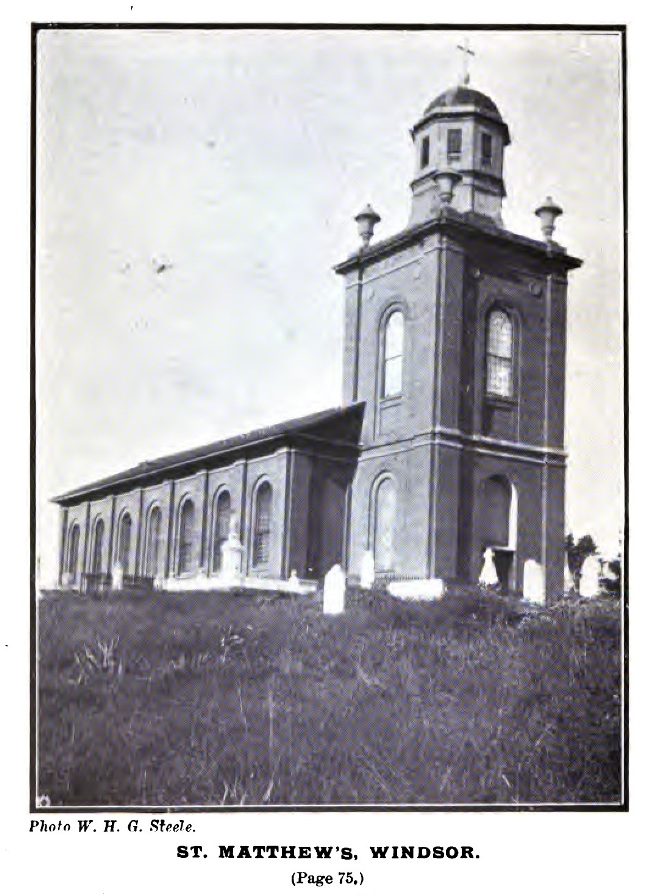 The following account of the funeral appeared in the Sydney 'Gazette,' 3rd November, 1810: — "In the mention of the death of A. Thompson, Esq., in the "Gazette" of last week, we should have added an account of the funeral, which took place, on Friday Se'nnight (which means seven night) had we in time received it. Between 12 and 1 in the afternoon, the remains of this much lamented gentleman were removed from his house on the Green Hills, which for the hospitality of its owner had been for many years proverbial, and conveyed to the Chapel on the Green Hills, whereat the Rev. Mr. Cartwright attended and delivered a very eloquent and appropriate discourse upon the occasion to one of the most numerous and respectable congregations ever assembled there, after which the ashes of this philanthropist were conveyed to the new burial ground, and these deposited in a vault in the presence of the multitude, who, it may be unexceptionally said, felt the most sensible regret in taking their last farewell of him whose life had been devoted to the service of his fellow creatures.
The following account of the funeral appeared in the Sydney 'Gazette,' 3rd November, 1810: — "In the mention of the death of A. Thompson, Esq., in the "Gazette" of last week, we should have added an account of the funeral, which took place, on Friday Se'nnight (which means seven night) had we in time received it. Between 12 and 1 in the afternoon, the remains of this much lamented gentleman were removed from his house on the Green Hills, which for the hospitality of its owner had been for many years proverbial, and conveyed to the Chapel on the Green Hills, whereat the Rev. Mr. Cartwright attended and delivered a very eloquent and appropriate discourse upon the occasion to one of the most numerous and respectable congregations ever assembled there, after which the ashes of this philanthropist were conveyed to the new burial ground, and these deposited in a vault in the presence of the multitude, who, it may be unexceptionally said, felt the most sensible regret in taking their last farewell of him whose life had been devoted to the service of his fellow creatures.
In the funeral procession the Rev. Mr. Cartwright walked foremost and was followed by Surgeons Mileham and Redfern, who had attended the deceased through the long and painful illness that brought to a conclusion an existence that had been well applied. Next followed the bier, attended by Captain Antill, A.D.C. to His Excellency the Governor as chief mourner. The Paul bearers were Mr. Cox, Mr. James Cox, Mr. Lord, Mr. Williams Mr. Arndell, and Mr. Blaxland. A number of gentlemen followed as mourners, and a long train, composed principally of the inhabitants of the settlement, followed in succession.
The following is a copy of the entry of his death in, the register of the Parish Church of Hawkesbury:— "Entry No. 5. Andrew. Thompson, Esq., of this Parish came to the colony in the ship ''Pitt," in the year of our Lord, 1792. Aged 37 years, and was buried October 25th, 1810. Robert Cartwright." A memo after this entry says : 'A. Thompson, Esq., was the first corpse buried in the new church yard at Windsor.' The inscription on his tombstone in St. Matthew's Churchyard read's as follows : —
SACRED to the memory of ANDREW THOMPSON ESQUIRE Justice of the Peace and chief Magistrate of the District of the Hawkesbury, a Native of Scotland, Who at the age of 17 Years; was sent to this Country where from the time of his arrival he distinguished himself by the most perservering industry and diligent attention to the commands of his Superiors. By these means he raised himself to a state of respectability and affluence which enabled him to indulge the generosity of his nature in assisting his Fellow Creatures in distress more particularly in the Calamitous Floods of the river Hawkesbury in the Years 1806 ,and 1809 where at the immediate risque of his life and perminant injury, of his health he exerted himself each time (unremittingly) during three successive Days and Nights in saving the lives and Properties of numbers who but for him must have Perished. In- consequence of Mr. Thompson's good Conduct, governor Macquarie appointed him a Justice of the Peace. This act, which restored him to that rank in Society which he had lost, made so deep an impression on his grateful Heart as to induce him to bequeath to the governor one-fourth of his Fortune. This most useful and valuable Man closed his Earthly career on the 22nd Day of October 1810, at His House at Windsor of which he was the principal Founder in the 37th Year of , his age, with (in) the Hope of Eternal Life. ' From respect and esteem for the Memory of the deceased, this Monument is erected by LACHLAN MACQUARIE, GOVERNOR of New South Wales
Before closing this sketch of Andrew Thompson we must mention that he had some bitter enemies in Sydney, though none locally, who painted him in a very different color. John Macarthur, referring to his death, says : 'It was an interposition of Providence to save the colony from utter, ruin; never was there a more artful or a greater knave.' In Bigges' report on the colony of New South Wale's, made in 1822, he describes him as using his wealth so as to gain an influence with the small settlers on the Hawkesbury, and also as a man of loose moral character.
But every fair minded historian will see that a man who won the esteem of three successive Governors, as well as of all the leading residents of the district in which he lived, including the clergymen, and at whose funeral the whole district followed their friend and patron, must agree that to call Andrew Thompson a bad citizen is a distortion of plain facts. Early Days of Windsor. (1914, October 9). Windsor and Richmond Gazette (NSW : 1888 - 1954), p. 9. Retrieved from http://nla.gov.au/nla.news-article85860782
Old Government House, Andrew Thompson, &c.
Mr. William Freame writes : — I am surprised that such a good authority as Mr J. C. L. Fitzpatrick should have sent the Gazette the paragraph copied from 'The Sphere,' of April 17, 1909, without offering' some comment or explanation. The paragraph copied in the Gazette, of September 18, is as follows:-
The presentment of an old Government House in which several of the early Governors (?) of Australia have lived in the days when there was only one settlement— that of Botany Bay — has an interest. Government House, Windsor, N.S.W., was first built for Governor Bligh about 1807, and, and the picture shows, is almost entirely of wood. It has been renovated many times, but is now almost in decay, and is lived in by the village shoemaker. Captain William Bligh (who was deposed by the New South Wales Corps,' on account of the strict measures over the liquor trade in the days when rum was currency) tried to reach Government House, Windsor, where he thought he could gather round him an army among the settlers, and defy the military, who were for the only time in Australian story, usurping civil rule. However, the recall of Governor Bligh prevented this; but the people round the Hawkesbury, of which Windsor is the chief town, still hold Captain Bligh's name in grateful memory. His successor in office, Major General Lachlan Macquarie, resided in the now ruined cottage, for several months out of every year, and administered the affairs of the chief penal station out of Sydney from offices in the building. Here was held the banquet where for the first time an emancipist sat at dinner with a Governor of the country to which he had been sent out, together with the officials under whose charge he had been placed as a convict.
Now this is incorrect. First, the so- called Old Government House, Windsor, was not a residence of the early Governors. Secondly, it was not built for Governor Bligh about 1807. As a matter of fact, it was built during Governor Hunter's time as a residence for the local commandant with office and depot; for public uses ; and is included in a Return of Public Buildings erected in N.S. Wales since 1796,' the said return being signed by Governor Hunter. As Governor Hunter completed his term of office during 1800, being succeeded by Governor King, it is plainly seen that ths old building — which is the oldest (known) building in Australia — could not have been erected for Governor Bligh, who arrived in 1806 In making this explanation I do not desire to detract one iota from Mr. Fitzpatrick's ability as the Windsor historian, for, as a matter of fact, a similar explanation may be found in his splendid work ' The Good Old Days.' But misleading statements, even if they have escaped Mr Fitzpatrick's notice, should not be allowed to pass as historical truths. I must also take ex ception to the statements that ' Governor Macquarie resided in the cottage for several months out of every year, and administered the affairs of the chief penal station out of Sydney from oflices in the building.'
Governor Macquarie, it is quite true, frequently visited Windsor, but he lived most ot his time in Parramatta (as Mr Fitzpatrick attests in his" Good Old Days") and he attended St. John's church ; wl.i'e a few yards from my residence is a tall gum tree - it may be seen from the train — which marks the site of Mrs Macquarie's chair, her favourite place of resort. In Mr D. McKellar's recollections of Macquarie (page 23 of 'The Good Old Days') we read that Macquarie lived in Parramatta, and never stayed any great length of time in Windsor. He would come up every month, and only remained a day at a time, and return next day;' 'I never recollect him remaining more than a couple of days at the most.' It is also incorrect to say that ' Here was held the banquet where for the first time 'an emancipist sat at dinner with a Governor. '
This especial mark of favor bestowed upon Andrew Thompson took place either in Government House, Sydney, or possibly Government House, Parramatta — certainly not in Windsor. This action of Macquarie's called forth the indignation of Chief Chaplain Marsden, who protested at being expected to meet at the Governor's table an ex-convict and a publican. I quite agree with Mr Fitzpatrick that Thompson's neglected grave is a disgrace and trust that something may yet be done to preserve it from utter ruin. But I am fully persuaded that Andrew Thompson was not altogether the amiable character some of his admirers would have' us believe he was. We know he rendered heroic service during the big flood of 1806, and we remember that circumstance as being most creditable to him. If Mr Fitzpatrick will look up 'The Sydney Gazette ' of the 11th of May, 1806, be will see Thompson was allowed to purchase brewing utensils from the Government stores, at an advance of fifty per cent on invoice price, with the privilege of brewing beer, in consideration of his humane conduct in saving life and property during the floods on the Hawkesbury, Macquarie made him a magistrate, despite the remonstrances of the free inhabitants, and the officers of the 73rd Regiment, and the sight of an ex-prisoner and rum seller, riding in his carriage through Sydney to dine with the Governor was hardly beneficial as a restraint upon incipient pick pockets and rick burners.
But Thompson was an opportunist. He knew on which side his bread was buttered. He kept 'sweet' while working at his trade in Parramatta, he looked after Bligh's interest at the Green Hills, and he became Macquarie's man 'Friday'; and in every instance Thompson prospered. He made a clear £1500 from an outlay of £150 in one year out of rum. And it has been said, with how much truth I cannot say, that with the assistance of Soloman Wiseman, he smuggled a great deal of his rum up the Hawkesbury. Thompson was a great money maker, a bold, fearless, determined plodder, a born capitalist who seized every chance to make money — and that is about 'all we can say of him. He made money — honestly, let us hope but he made it; hence his success. Old Government House, Andrew Thompson, &c. (1909, September 25). Windsor and Richmond Gazette (NSW : 1888 - 1954), p. 11. Retrieved from http://nla.gov.au/nla.news-article85864120
Ebenezer Pioneers OF THE HAWKESBURY.
(By Geo. G. Reeve.)
JOHN HOWE—PIONEER, PATRIOT AND EXPLORER. PART II.
'For many a year on many a , sea and in many an alien- land, Wherever is need of a fearless brain and a happening hefty hand, Valley and mountain, prairie and plain, forest and shore have rung With the pluck which mounts in our British blood and sings in the English tongue.'
THERE is no place in Australia quite like Windsor — there are no people anywhere like the Hawkesbury natives. They are typical Australians of our time. For are they not the direct descendants of the first real Australians. The Hawkesbury Valley is the cradle of the Commonwealth, and it was from these rich lands that Australia was really colonised. From these wide and rich flats, where first grew wheat and maize, came the real 'Cornstalks' whose descendants spread over the continent. The destinies of Australia were actually shaped in this part of New South Wales— long before the goldfield days of the rich nuggets and places where towns sprung up in a night.
When you go to Windsor, it is up to you — if you are an Australian like the writer — to go at least with your hat in your hand. The old town is worthy of some respect-the old settlement of 'The Green Hills' which Governor Macquarie re-named Windsor when he visited it with his famous wife and a large retinue in the year 1810. That Government House party were entertained by the notabilities of the time. By Andrew Thompson and his wife, Mrs. Thompson. Concerning the wife of Andrew Thompson the emancipist, there is much mystery. No satisfactory solution has yet been given as to who she was, when she died, etc. Some writers have affirmed to me that Andrew Thompson was a veritable Brigham Young, for the wide and large selection of wives which he is said to have employed at various establishments on the Hawkesbury. Other writers have praised Thompson to the highest pinnacle as the Hawkesbury' s greatest citizen, and look upon Thompson as the personification of all the attributes of the Archangel Michael. Listen to what John Macarthur said referring to Thompson's decease:— 'Thompson's death was an interposition of Providence to save the colony from utter ruin. Never was there a more artful or greater knave.''
The latter portion of Macarthur's opinion might be fully justified if one looked more into Andrew Thompson's character under the surface as to how Thompson was able to amass such great wealth as he possessed at his death in so few a number of years. I have touched on Emancipist Thompson at length because his death, which occurred 22nd October, 1810, was the key to the mainspring that induced our hero, John Howe, to leave his 100 acre farm at Lower Wilberforce and take over the large storekeeping business established on the site in George street, Windsor, where Thompson Square gardens are now.
Farm produce cultivation must have had something in it that pleased, for after nearly 30 years in an active and strenuous official career, Howe again appears in that role, at Raworth Farm, near Morpeth, in July, 1839, where he purchased 200 acres of land which were a grant to a Mr. J. Griffiths in the year 1823. So rich is that land which is on the banks of the Hunter — it is used nowadays only for lucerne cultivation — that a few years ago land adjoining Ra-worth was sold at £500 per acre. When the writer made a special trip to Morpeth about six years ago to view the vault tomb of John Howe, he ascertained that there were at Raworth ten lucerne and dairy farms established on the original 200 acres once owned by Howe. I mention this to show to what productivity can land be used to maintain what Goldsmith calls 'a thriving peasantry' or yeomanry. In the 'Sydney Gazette' of December 11th, 1813; appears this notice: — 'HOWE'S FARM. 'To be sold by private contract, a valuable farm, free from every encumbrance, on the banks of the Hawkesbury River, commanding an extensive stock run for horned cattle and sheep, situate in the District of Portland Head, within eight (8) miles of the town of Windsor, consisting of one hundred (100) acres, about twenty-one (21) of which are clear and under cultivation (is let on a lease expiring in March next) at £30 per annum. A safe residence from the highest floods, and adjoining that extensive Common from Portland Head to Richmond Terrace (North Richmond) and known by the name of Howe's Farm. Particulars may be known by applying to J. Howe, Windsor.' The larger portion of this farm grant on which still stands portion of the stone residence built by Mr. Howe, and nearby is where his first wife (nee Miss Frances Ward) is buried. The place is owned by one of the Hall family, of Scone, and is the same place once occupied by the Mills family and Mr. Ralph Turnbull. II.
Of course it can be understood that Mr. Howe having come to Windsor in the latter part of 1809, and later holding so many appointments, besides being the largest storekeeper of the time, Howe could not devote any of his time to his farm at Ebenezer (which the vicinity came to be known by the name of).
...
Ebenezer Pioneers OF THE HAWKESBURY. (1924, January 18). Windsor and Richmond Gazette (NSW : 1888 - 1954), p. 1. Retrieved from http://nla.gov.au/nla.news-article85901916
THE GOVERNOR'S MAN. A Tale of the BLIGH REBELLION. By J.H.M. ABBOTT XII.—Andrew Thompson.
It is a beautiful place, that hill by the side of the noble river that winds down through green fields at the foot of the purple mountains. I have always, regretted that Governor
Macquarie thought fit to change its original name to the one it bears to-day. It is not in the least like Windsor, really, and the old name of the Green Hills seemed to fit it better by far than this borrowed one. Only in one respect do the old and new Windsors resemble one another at all. And that is in the charm o£ their loveliness and quiet, peace ful beauty.
There is another thing about the place, too, that always seems to me to lend it an interest beyond any other locality in the colony. It was the real cradle of the Australian race— the place to which some day, when Australia, as she inevitably must, has taken rank amongst the nations of the world, all her sons and daughters should turn as to the hearthstone of their ancestral home. For it was on the Hawkesbury that the first Australians were bred—and where ever was there a finer breed than those Hawkesbury natives of the first generation—the strong men and fruitful women who were the fathers and the mothers of the people who are the backbone of the country to-day? The last ten years— the years of the gold discoveries—have brought an influx of new blood into the country from all the races of the world—a far stranger medley than came here in Arthur Phillip's little fleet in '88—but there has come no type that was a better one than was given birth to here. I should say, myself, that the true aristocracy—using the word in its best sense—of this splendid country is made up of the descendants of the people who were born on the Hawkesbury, in the first quarter of the nineteenth century. I may be wrong, but so it seems to me.
The corporal walked along beside me till we came to Andrew Thompson's house—not the fine two-storied one he built during the government of General Macquarie, but the little cottage above the river which was the first dwelling-place of this remarkable man, after he had begun to carve out his fortune.
Already Andrew Thompson was one of the leading men amongst the Hawkesbury settlers. He lived for little more than ten years after this time, and was only in the early thirties when he died. But he died a wealthy man, this young Scot, who had been transported when he was only seventeen years of age for setting fire to a hayrick! Had another thirty years of existence been vouchsafed to him, there is no knowing how far he might not have gone, or what he might not have done in the development of the country he had been forced to adopt. He had the pioneering spirit as few men have it—a fact which his shrewd fellow-countryman, Lachlan Macquarie, was not slow to recognise, or backward in rewarding.
He received me with the grave courtesy which was characteristic of him, took the Governor's letter from me, read it as he stood in the sunlight on the threshold of his dwelling-place, considered it for a few minutes, and' then stepped out and took Jessie's bridle reins from my hands.
Ye'll be John Carnford, I'm thinkin'? I've hearl of ye, ma mon, an' I bid ye welcome, wen jist give the mare—a likely animal she is—a drink of water an' a bite of hay, and then ye'll tak' a bite wi' me y'sel'. I mis- doubt ye'll have a fine appetite after y'r ride from Parramatta, where no doubt ye slept last nicht."
His accent was North Country, but not very broad, and I found something likable in his honest, shrewd face. I was always on good terms with Andrew Thompson, and count it an honor to have known him. And, as I have hinted above, I am always wondering what the man might not have done had he had more s years to do it in than were allotted him. ? While we were at dinner, he questioned me closely as to the state of affairs in Sydney, more particularly with regard to the attitude of the officers of the garrison towards His Excellency, I told him that it seemed to me there was little love lost upon either side. He shook his head and laughed. ;
"Ye're richt, laddie—I ken weel that ye're richt. There's no love at all. And I'll tell ye the why of it. Governor Bligh, for all that he's a rude mon, an' a harsh mon, an' a mon that it's ill to cross—he's an honest mon, and has the welfare of the colony to heart. But the officers of the Corps—ah, weel, they're no quite so honest as they might he, an' some of them have better heads than His Excellency. And there's this difference, too. He's for the good of us all—bond, emancipists, and free settlers—but they are only for the good of ' themselves. They're a poor lot, takin' them a' round, and not one of them has ever had such chances as they've got here. They mean to make the most out of them that they can. He's for seeing that they dinna make it at the colony's expense a' loss. They won't be thwarted. No more will Captain Bligh. There'll be trouble will come out of it, laddie, there'll be trouble. I can see it coming. I can see big trouble—an' not so far awa' either."
He told me that the Governor had summoned him to Sydney, and that he would ride with me later in the afternoon, when it should grow cooler. If I would rest there for a few hours, he would go out and attend to some of his affairs, and we would make a start about five o'clock, carrying our supper with us, and eating it on the road. It would be a moonlight night, and we might make Parramatta between nine and ten o'clock, and go on to Sydney in the morning.
So he went about his business, and I snoozed in his living-room throughout the warm afternoon. I was not sorry at the prospect of having company for the return journey. I had hopes that I might learn a good deal from him about the state of the colony and its prospects. I was anxious to know all that it might be possible to find out, in view of the ultimate hope I had of investing my fortune in the new country. The more I saw Of it the better I liked it, and although, just now, it was little more than a penal establishment, I was sufficiently wise, even at twenty years of age, to realise that it would not always remain such, and must inevitably have something infinitely better in store for itself.
We rode away from the Green Hills at the hour named by Mr. Thompson, and as we passed by the soldiers' barracks, I related to him my encounter with Mr.. Keating in the morning. An expression of disgust of crossed his features.
"Yes," he said, "the mon's a wastrel. He's naething at all but a drunken profligate— s a gambler, a rake, and a liar. I ken that weel. When he's in his cups he will brag and boast about what he has been, and what a great mon he is. When he's sober, so far as the performance of his duties goes, he's just an incompetent ass. If it were not for Sergeant Allen, the ordinary routine of the detachment would not be carried out at all. As it is, 'tis the hardest thing in the world to get him to do anything of the work for which he has been sent here. A little while back, the blacks became troublesome, and we sought the assistance of the military to punish them, and to drive them away fra th' pasture lands. D'ye think we could get him tae dae onything? Not a move would he make. 'Twas only when a couple of us conspired with the sergeant that we were able to use the soldiers. We plied him with wine all one night and the whole of the next day, and, on the following night, at our suggestion, mind ye, he gave a drunken order—simply that we might let him go to sleep—that the so-and-so black somethings were to be dealt with; not tae bother him abbot it. I heard him tell Sergeant Allen so, cursing and threatening to break if he did not leave him alone."
"And did you deal with them?"
"Aye—that we did,” he replied grimly. "We Shot three of them, an' we hangit one to a tree in their camp an' th' rest fled across th' river to th' mountains. We've nae had ony trouble wi' yon black gentry syne. But 'twas no thanks to Mr. Keating."
Just as the sun set over the purple ranges behind us, in a glory of orange and crimson, we halted to make tea. Mr. Thompson carried a stuart-pot tied to his saddle, which we filled at a little creek in the bush. We soon had a fire going, and presently were enjoying a good meal which his housekeeper had prepared for us—a cold fowl, and some delicious scones, with fresh butter, and, for dessert, some splendid peaches, grown on his farm. We had taken the saddles from the horses, and they grazed quietly close beside our fire. After our repast we lay and smoked, until the moon was well above the dark tree-tops. I told Mr. Thompson of my encounter the day before with the expedition to China. He laughed sadly.
"Th' puir feckless loons!," he sighed. "Th' puir daft creatures! Mon, it is a sin to treat those unhappy men in the fashion they do. Ever since the rebellion at Castle Hill two years ago, they have been driven like cattle, and worked like galley slaves. The authorities are in mortal fear of another outbreak, and they deal with them mercilessly. Why, I have seen a man flogged for turning his back on an overseer! No croppy ever escapes the gallows if he's once committed a capital offence—if 'tis only stealing half-a-dozen pumpkins from a garden. They are eager for any excuse to hang the unfortunate Irish, an' they harry them an' torment them until they break out. And then, those they don't shoot or hang, or flog to death, they ship off in batches to the Coal River or to Norfolk Island. And they say that Norfolk Island is worse than death itself. Ah, me— : man's a cruel deevil tae his fellow-men. Look at me! They sent me round the world for what was on'y a boy's mischievousness, at the worst." *
He gazed into the fire for a little while without speaking, whilst the dancing flames ' lit up his sun-tanned, keen, clever face. He laughed again.
"But they puir fellies, an' their travels tae Chiny! Weel, 'tis but a feast for the dingoes they're providing. Maybe some stock-man, mony years tae come, will find their bones, or some of them, in some wild glen of yon Blue Mountains. Maybe they'll et one another—as has been done before. It’s more like they'll stagger Into some settlement in a few weeks' time, prayin' tae be flogged an' fed. 'Tis pitiful, the ignorance of them. If ever Government committed a crime, the English Government did, when it shipped those simple, honest, harmless lads to this sink of iniquity. But we'd best be gettin' on, I'm thinkin', if we wish tae sleep in Parramatta this nicht."
We caught the horses, saddled them, and rode on, the moonlight glinting on the polished brass barrel of the blunderbuss which Mr. Thompson carried across his thighs.
"Tis a guid weep on in a mix-up, laddie— If 'tis no tae be relied on for long-distance shootin'," he, said, when I pretended to admire the clumsy weapon, With its gaping bell mouth.
As we rode down from Castle Hill, the lights of Parramatta twinkling in the valley below us looked pleasant and cheerful. A thin, white haze floated in the moonlit bottom above the river, and the hills to the south were flooded with a pale radiance. The moon was full, and it was a perfect night. We came into the straggling street that led pass the gaol it stood not far from the northern bank of the river—and crossed the wooden bridge that spanned these topmost waters of Sydney Harbor. Hardly had we gained the further shore when we were accosted by two women, who, with shawls over their heads, walked along the uneven roadway of Church Street.
"Good night to ye, boys," cried one of them
"An' "where are ye a-ridin' this , fine night?" she said to me, as we involuntarily drew rein. "Will ye not take me up ' ahint ye, an' ride away with me to Sydney Town? ,
"Aw, to -— with them, Mary!'' he- ' cupped the other one, who swayed where she stood, and clasped a black bottle to her bosom. "We don't want 'em. Let s get along home an' finish th' bottle. Tie good stuff. Mtaterfilnclair, the tup'r attendent, give it me. Come along, now."
The girl who had first spoken came close to us, and peered up at us, and the moon lit her white face, and showed it singularly beautiful with a wealth of black hair straying from under the folds of the shawl. It was a sweet face, with something a little hard and sad in it. Mr. Thompson started as he recognised it
"Good heavens—Mary M'brain!" he said. "What do ye with walkin' th' streets at this time o' th' nieht? 'Tis ten o'elock, an' ye were best at home. Are ye not in service at Mr. Marsden's? Get ye home, like a good lass,"" or th' parson'll be send ti' ye back tae th' Factory. Be a sensible girl, and leave this woman."
"Home!" the girl cried harshly. "Home! What home have I? Come, Mr. Thompson, you're from the Green Hills. Ask Mr. Keating about my home, an' why I left Parson Marsden's. Ask him when you go back."
She laughed bitterly, and then covered her face with her hands and wept.
"Damn all you men!" she said, and fled down to the bridge, while her companion howled out filthy blasphemies after us, as Andrew Thompson touched my arm, and we rode on,
"Th' pity of it, th' pity of it," he muttered. "Poor Mary M'Bain! I knew her as a bairn, at home in Ayrshire. Th' pity, th' pity!"
We rode to James Larra's Inn, stabled our horses, and sought our beds, intending an early start for Sydney in the morning.
(To be continued next week. Commenced in No. 805.)
THE GOVERNOR'S MAN. A Tale of the BLIGH REBELLION. By J.H.M. ABBOTT: Chapter XII.—Andrew Thompson. (1917, June 30).The World's News (Sydney, NSW : 1901 - 1955), p. 24. Retrieved from http://nla.gov.au/nla.news-article130587093
On Tuesday arrived in Broken Bay the Ann, Capt. Gwynn, and Ann & William, Capt. Gardner, both south whalers; the former with 1300 and the latter 800 barrels of Spermaceti oil. SHIP NEWS. (1805, October 27). The Sydney Gazette and New South Wales Advertiser (NSW : 1803 - 1842), p. 1. Retrieved from http://nla.gov.au/nla.news-article626949
LOSS of the NANCY.
In addition to the losses recently sustained to the Colony in its small craft, we have to regret that of the above fine cutter on the 18thultimo, a few miles to the southward of Jervis Bay. On the 17th appearances strongly indicating an approaching gale, she hauled offshore, and in the evening a dreadful hurricane set in accompanied with very vivid lightning, and awful peals of thunder that rolled without intermission, together with an incessant torrent of rain. The rage of the elements increasing, split the mainsail, which was close-reefed, the vessel still driving at the rate of 4 or 5 knots, and at the same time making much lee way. At midnight the gale became furiously violent, not a sail was left, and the sea making a fair breach over her, prevented the possibility of keeping alight in the binnacle. The gale blowing dead on the shore, at about two in the morning the man at the helm gave notice of land to leeward, which was discernible by the lightning; and such was its appearance, being a chain of perpendicular cliffs against which the sea dashed with inconceivable violence, as to fill with horror and consternation the minds of those already hopeless of escaping a destiny presented in a variety of dismal shapes; all above-board was by this time washed away, and to avoid grounding in a situation where every person on board must have inevitably perished, all that remained to determined perseverance was effected, and by keeping her as much to the wind as her helpless condition would permit, she happily changed her ground, and striking on a small sand-beach between two bluff heads, unhung her rudder at the first blow. To this inter-position of providence alone is to be attributed the rescue of the people from a melancholy fate, one of whom, Richard Wall, a native of Exeter, was unfortunately lost.
The same morning the hull parted, and shortly after went to pieces, the continued violence and rapidity of the surf preventing any part of the cargo from being saved; and such few articles as were washed ashore were carried off by the natives, who, though they offered no personal violence, had become too numerous to be resisted. One of these people, whose conduct Mr. Demaria, the master of the vessel, noticed as being in all respects opposite to that of his brethren, cheerfully undertook to conduct his distressed party to Jervis Bay, for which place they set out on the morning of the 20th, and reached it the same evening; and next morning, perceiving that the natives, possibly with no other design than the gratification of curiosity, were clustering round them from all directions, it was considered most adviseable to commit themselves to the Providence that had thus far bountifully preserved them, and make the best of their way for Sydney by pedestrian travel. Destitute of provisions, without a musket, except one that was useless, and only borne to intimidate the natives, the proposal was readily concurred in, and after a terrible journey of eleven days, lengthened much by the inundated state of the country, they attained the much desired object on Wednesday night last, crippled by fatigue, and reduced to the last extremity by actual want.
Near the Five Islands Mr. Demaria mentions his having experienced a portion of civility from the natives which would do credit to a more polished race of men, as it even extended to the liberal partition of their scanty fare among his little party when they were much exhausted. On the other hand a Sydney native who had accompanied the trip and received every favour and indulgence, forsook his fellow travellers the day after the wreck, and went over to his kindred with every trifling necessary that might have softened in some measure the rigours of a painful travel. Among the articles stolen by this perfidious miscreant was a small axe, the loss of which added much to their calamity, as the travellers had not then any edged implement whatever, and were in consequence deprived of the means of procuring the cabbage tree, upon which they had placed much reliance.
The cargo of the Nancy consisted of 3187 skins; she was the largest vessel ever built at Hawkesbury, from whence she was about two years since launched by Mr. Thompson, and sold to Messrs Kable and Company, in whose service she remained to the moment of her dissolution. LOSS of the NANCY. (1805, May 5). The Sydney Gazette and New South Wales Advertiser (NSW : 1803 - 1842), p. 2. Retrieved from http://nla.gov.au/nla.news-article626748
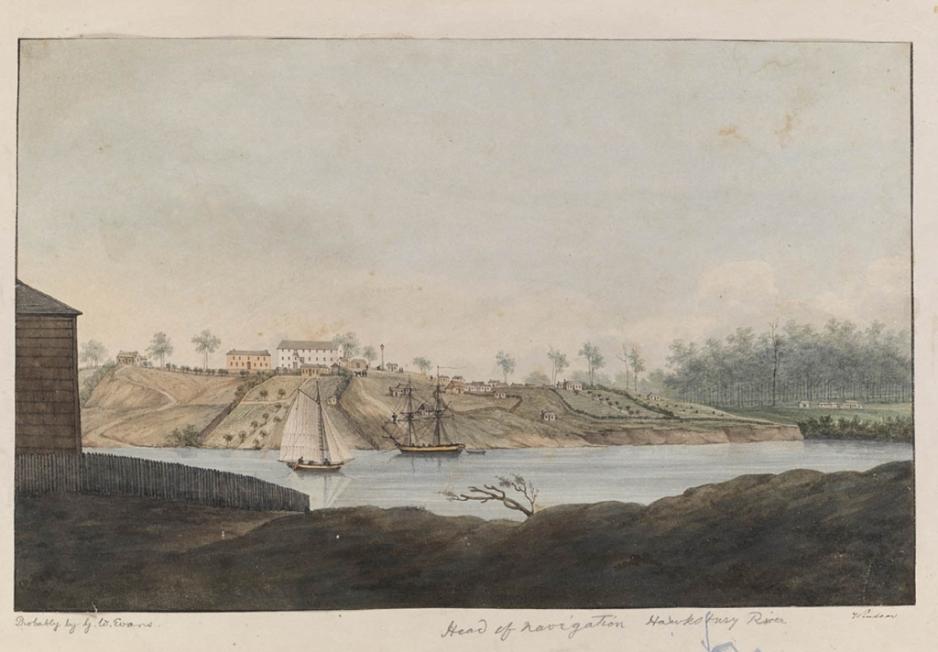
Windsor, Head of navigation Hawksbury [sic] River / watercolour, possibly by G.W. Evans, & formerly attributed to E. Earle, circa 1810 - Image no.: a1528032
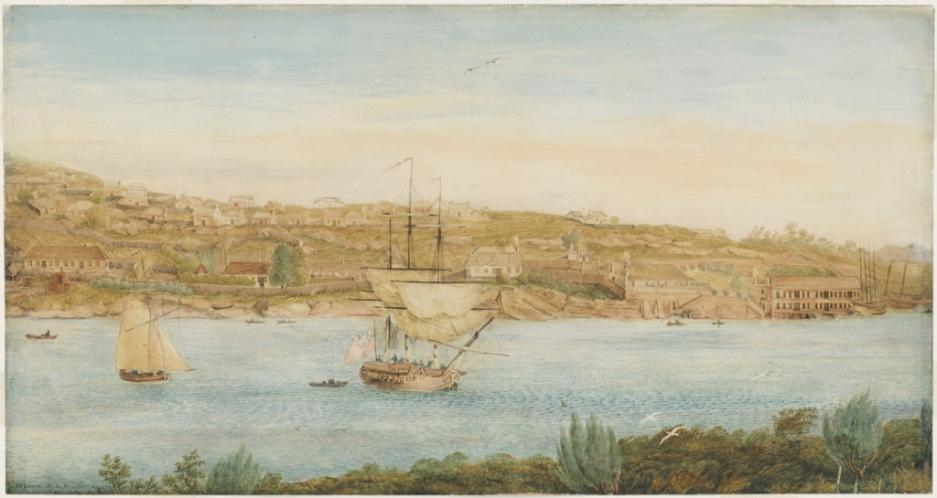
Sydney Cove - 1808. Image No.: a4721001h, courtesy State Library of NSW.
Andrew Thompson threads collected and collated by A J Guesdon, 2014.